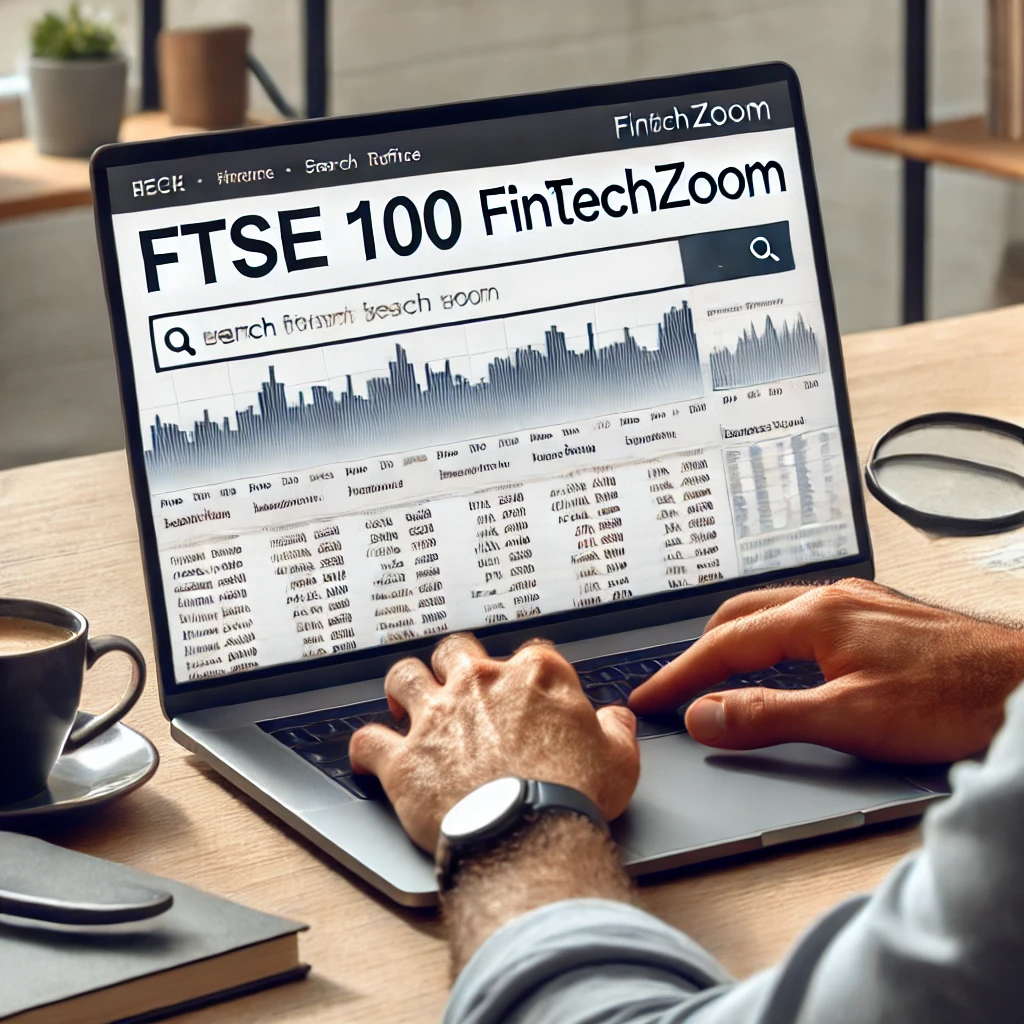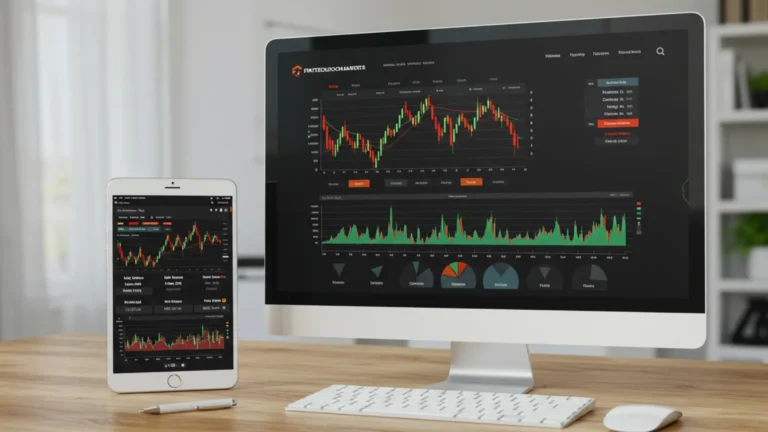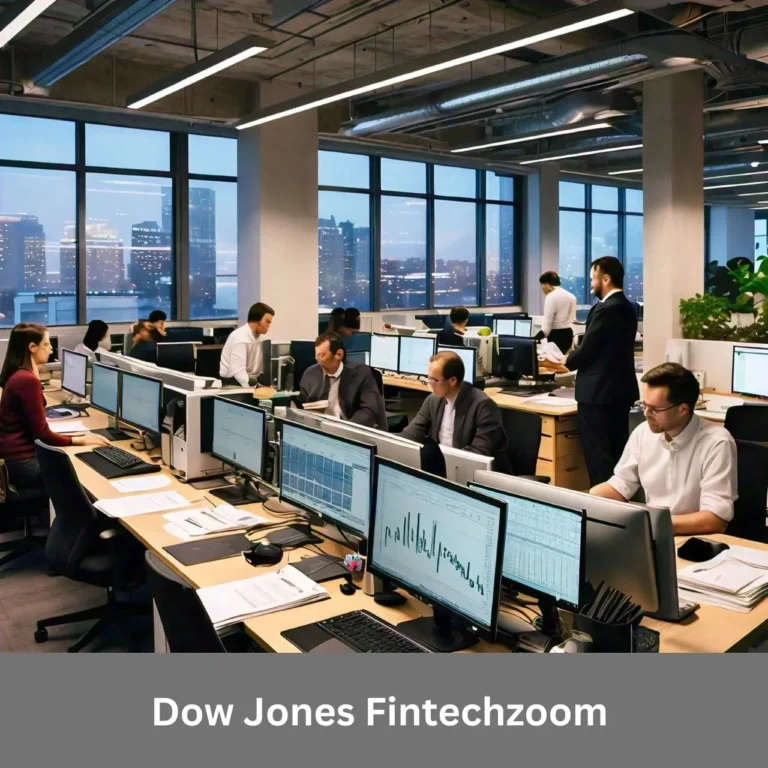Fintechzoom.com FTSE 100: How Technology Is Changing Market Insight
Markets don’t just move; they communicate. Every shift in the FTSE 100 tells a story, and the ability to read that story in real time can make all the difference. That’s where fintechzoom.com FTSE 100 tools come in. This platform simplifies market complexity and gives investors a front-row seat to the performance of the UK’s most influential companies.
Real Time Chart of Fintechzoom.com FTSE 100
Why Fintechzoom.com FTSE 100 Still Matters

For nearly four decades, the FTSE 100 has offered a snapshot of the businesses steering Britain’s economy. From energy giants to pharmaceutical leaders, the index reflects broader market sentiment. What has evolved is how investors interpret that data. Today, fintechzoom.com FTSE 100 delivers the clarity, context, and speed modern investors need to keep pace with change.
How Technology Reinforces Market Awareness
The days of checking closing prices in the newspaper are long gone. Investors now expect real-time updates, actionable insights, and visualized trends. FintechZoom delivers that by transforming raw FTSE 100 data into structured analysis that is accessible, flexible, and fast.
Its dashboard shows not only index-level movement but also sector contributions, top risers and fallers, and how external events—like energy policy or global trade changes—affect specific companies within the FTSE 100.
Making Smarter Moves with Better Tools
Fintechzoom.com FTSE 100 allows users to customize how they view the market. Whether someone wants to track financials, healthcare, or tech stocks, they can personalize their feed. This tailored setup helps investors focus on relevant data instead of sorting through noise.
The tools also assist with pattern recognition. By comparing short-term fluctuations to long-term trends, investors gain perspective. Those who trade frequently can spot entry or exit points more clearly, while long-term holders benefit from ongoing context.
Fintech’s Influence Inside the FTSE 100

The companies listed in the FTSE 100 don’t just get analyzed by fintech—they use it themselves. Many of them rely on artificial intelligence to monitor risks, improve logistics, or streamline operations. Fintech isn’t a layer outside the market; it’s inside it.
Take financial firms as an example. They now automate credit analysis or fraud detection using machine learning. Energy firms use blockchain to record supply chain activity. Retail giants optimize inventory with predictive modeling. As these technologies affect earnings and efficiency, their influence shows up in stock prices.
Real-Time Market Reactions and Confidence
Timing matters in investing. Fintechzoom.com FTSE 100 delivers immediate responses to news—earnings calls, government policy updates, or global financial shifts. This real-time advantage allows investors to respond within minutes, not hours.
The platform’s alerts keep users informed, even when they’re away from their desks. These features support day traders and active investors who need to protect gains or cut losses in volatile conditions.
Navigating Global Correlation
FTSE 100 companies don’t operate in a vacuum. Their performance often aligns with international trends. For example, when U.S. tech stocks surge, UK-listed suppliers might see a lift. FintechZoom makes it easy to compare movements between global indices and the FTSE 100.
By spotting cross-market relationships, investors can adjust their portfolios with greater insight. It’s no longer about watching one index in isolation—it’s about seeing the connections that drive capital flows.
Reducing Risk with Better Understanding
Risk management is part of every investor’s strategy. FintechZoom supports this by offering risk indicators and historical data that help users understand volatility. Investors can evaluate how a stock performed during past downturns or how entire sectors responded to shocks.
With that knowledge, they build strategies that reduce exposure without eliminating opportunity. Whether it’s by diversifying, setting stop-losses, or shifting into defensive sectors, the data supports each decision.
Fintech for Everyone, Not Just Analysts
FintechZoom’s success lies in its usability. It doesn’t require a finance degree to understand the basics. Clear visuals, glossary terms, and straightforward explanations make the FTSE 100 accessible to new investors.
At the same time, deeper tools exist for those who want to run comparisons, export data, or drill into company fundamentals. This dual design supports learning and growth at every stage of the investing journey.
Regulation and Investor Protection
As fintech expands, regulators keep a close watch. That’s good news for investors, who rely on transparency and fair market access. Fintechzoom.com FTSE 100 supports compliance by sourcing verified data and avoiding hype or speculation.
In a market where misinformation can sway trades, accuracy builds trust. FintechZoom’s focus on integrity strengthens investor confidence—especially important when trading high-value stocks from major UK companies.
Looking Ahead: The Role of Fintech in the FTSE’s Future

As artificial intelligence improves and data analysis becomes more predictive, fintech will shape how the FTSE 100 is both viewed and traded. Investors will no longer react to change—they’ll anticipate it.
FintechZoom is positioned to lead that shift. It already delivers instant insights, and future updates may include personalized AI-generated reports, ESG impact scoring, and interactive financial forecasting.
Final Thoughts
The fintechzoom.com FTSE 100 experience isn’t just about watching the market—it’s about understanding it. With tools that provide context, speed, and depth, investors can navigate UK stocks with clarity and confidence.
In a world of uncertainty, access to real-time, actionable information makes all the difference. Whether you’re a first-time investor or a seasoned trader, fintechzoom.com FTSE 100 helps you make smarter, faster, and more informed decisions.
FAQs
It’s a combination of real-time market data and financial analysis tools on FintechZoom that helps investors monitor and understand movements within the UK’s FTSE 100 index.
Yes. FintechZoom provides clear charts, explanations, and easy-to-use dashboards that support beginners while offering advanced tools for professionals.
It offers live data, sector performance breakdowns, news alerts, and pattern recognition tools to help investors make informed decisions faster.
Yes. FintechZoom includes insights from major indices like the S&P 500 and Nasdaq, making it easier to compare trends and correlations with the FTSE 100.
Many features are free, but in-depth analysis tools, premium alerts, and advanced forecasting may require a subscription or upgrade.







